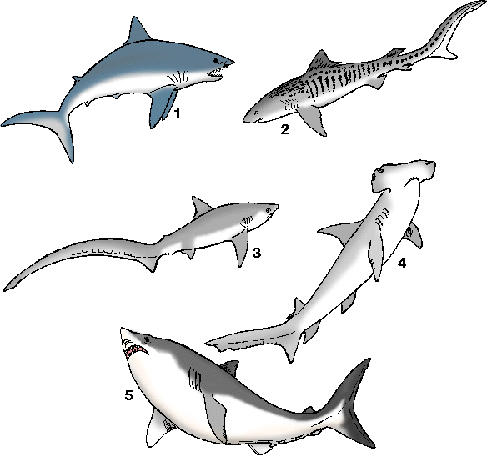: any of numerous mostly marine cartilaginous fishes of medium to large size that have a fusiform body, lateral branchial clefts, and a tough usually dull gray skin roughened by minute tubercles and are typically active predators sometimes dangerous to humans
